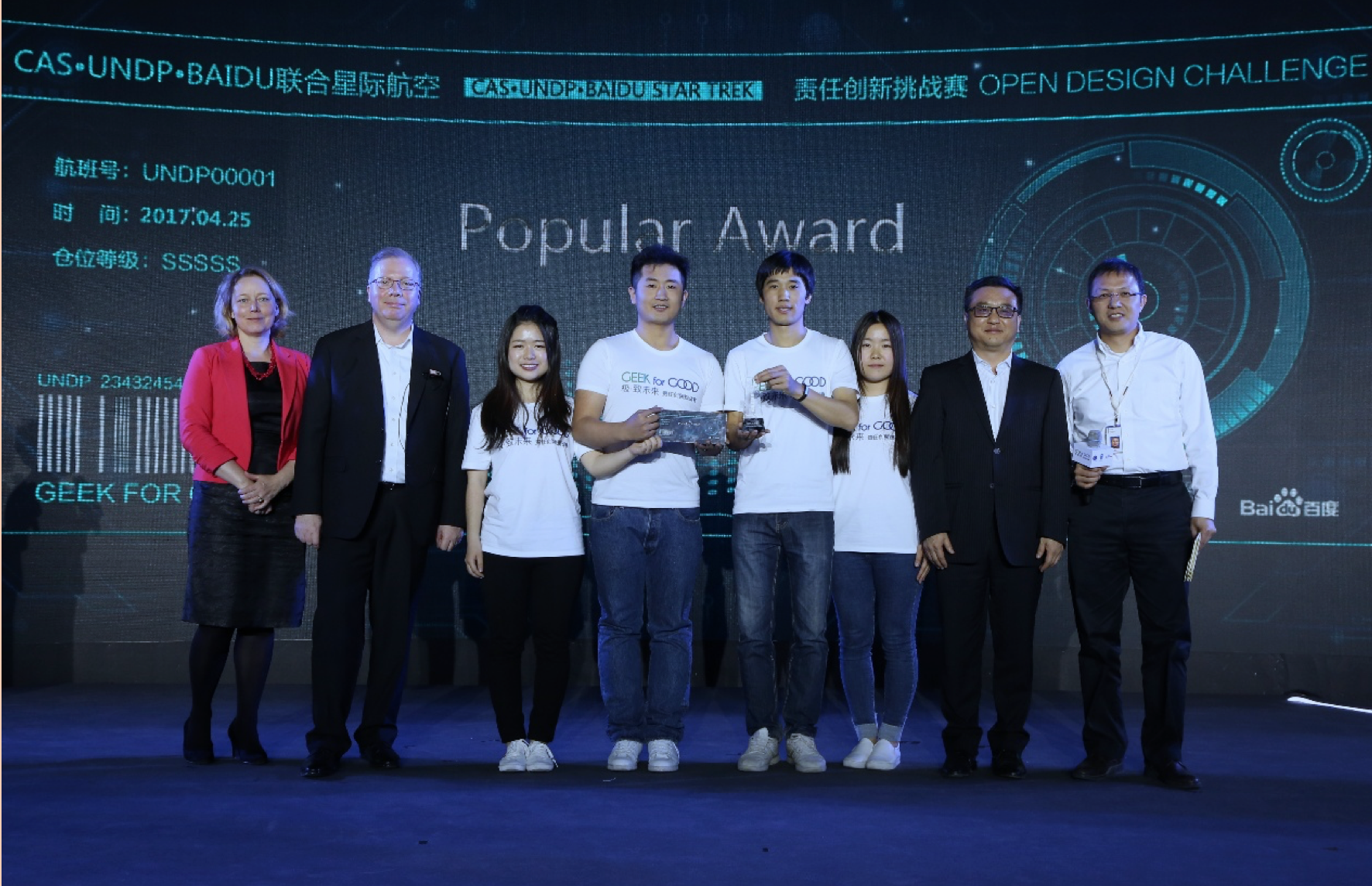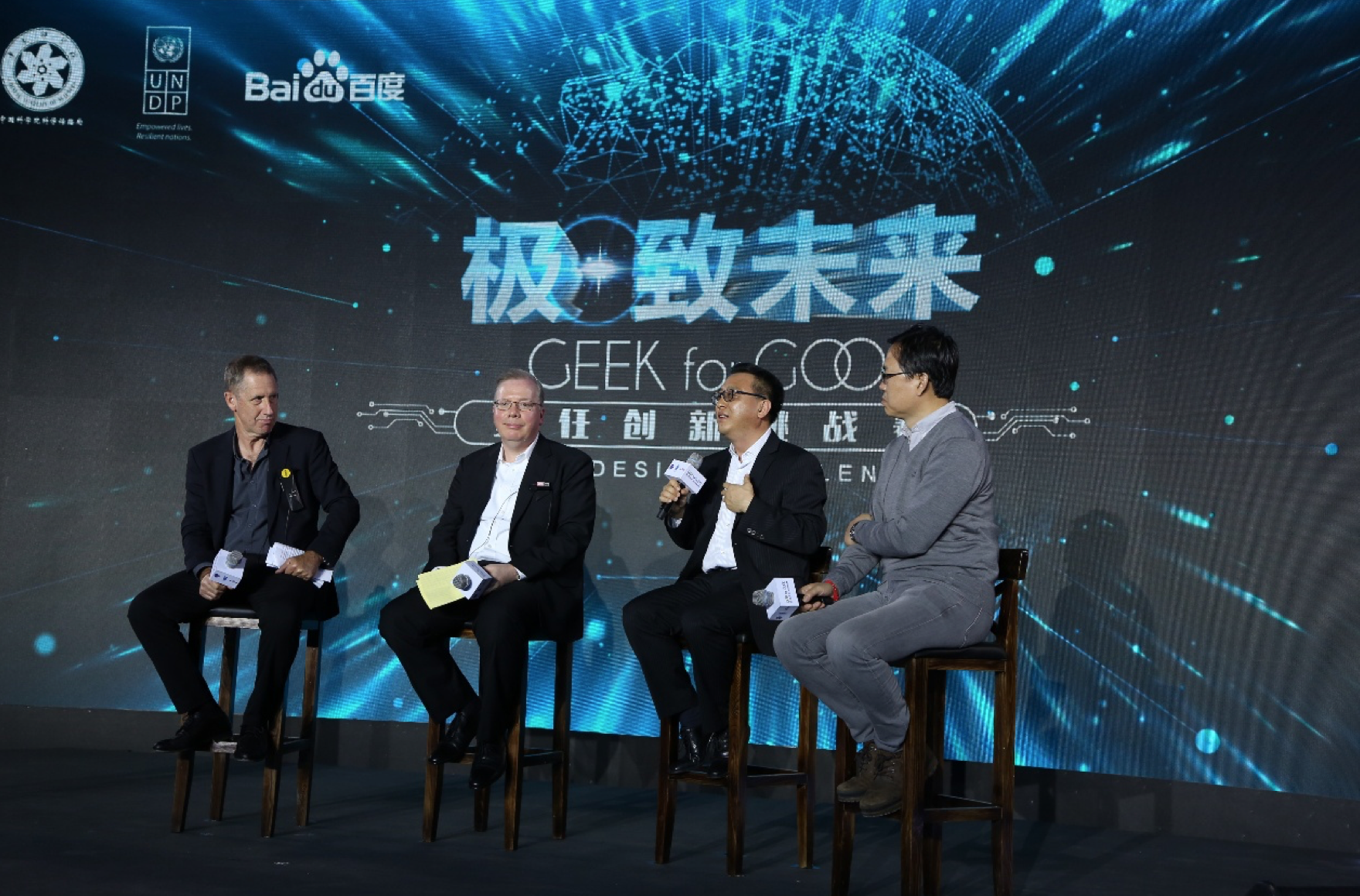ã€Global Network Technology Report】On April 25th, the "Zhi Zhizhi Future" Responsible Innovation Challenge hosted by Baidu and the United Nations Development Program was held in Beijing. After two rounds of knockout matches, 10 teams successfully entered the final total. finals. In the finals field, 11 panelists, including Bai Yuan Research Institute President Lin Yuanqing, UNDP Head of Country Wen Weijie, and Google Chief Scientist Yoav Shoham, were invited to participate in the show through the creative program and the judges reviewed and reconsidered. The teams that saw the voice and heard sign language at Tsinghua University and Beijing University of Aeronautics and Astronautics won the first prize in this challenge. The “Seeing Sound, Hear Sign Language†team of Tsinghua University and Beijing University of Aeronautics and Astronautics won the first prize in this challenge. Tsinghua University and Beijing University of Aeronautics and Astronautics received the first prize of the challenge team from the “See the Voice, Sign Language†team. Baidu President Zhang Yaqin and the United Nations Representative in China, Luo Shili, and four other important guests attended the competition and “GEEK†"For GOOD" topic dialogues can be called a "responsibility innovation without borders" dialogue. The Challenge lasted 4 months and received 2,075 creative proposals Under the guidance of the Bureau of Science and Communications of the Chinese Academy of Sciences, Baidu and the United Nations Development Program formally launched the Responsible Innovation Plan and the Extreme Challenge Innovation Challenge in December 2016 in New York. It aims to encourage people to come up with innovative ideas through challenge competitions, use scientific and technological forces to cope with development challenges, solve social problems, and help global development. The first challenge focused on four areas: the environment, poverty alleviation, transportation and disaster reduction. The Challenge received a total of 2,075 proposals. The participants covered almost all age groups from the age of 15 to 63. Among the four major categories, environment and poverty alleviation are two topics that the participating teams are most concerned about. 38% of the entries are designed to solve environmental problems, and 30% of the entries are based on poverty. Of all the programs, garbage and disaster are the topics most concerned by the team. More than 30% of the entries mention the keyword “junk,†and nearly a quarter of the projects focus on various disaster issues. Colleges and universities are the main force in this competition. More than 84% of the works are from the hands of students from major universities. Among them, the robot research team of Nanjing University brought the “Spider-Man†intelligent rescue team program to the competition. According to their ideas, the “Spider-Man†smart rescue team can effectively solve the 72-hour gold rescue problem after the earthquake. At the same time, the use of artificial intelligence technology can make it more accurate to find survivors and implement rescue in the event of earthquake relief. Now that they have created prototypes, this innovation will have a positive impact on global disaster relief. The joint team of Tsinghua University and Beijing University of Aeronautics and Astronautics proposed an innovative solution to the communication of people with hearing impairment. Through the acquisition of sign language when the hearing-impaired person signs the EMG signal, arm acceleration signal and convert it into speech. This armband-based sign language translation system "manual sound" is using deep learning and natural language processing capabilities to solve 500 kinds of sign language data training. The team hopes that this project can effectively solve the communication problems among the hearing-impaired people and enable them to obtain social resources in a fair manner so that they can live a better life. Zhang Yaqin, president of Baidu, stated: “Innovation is borderless, and the greater the capacity, the greater the responsibility. This plan, which we jointly created with the United Nations Development Program, will bring more opportunities for social development. We are very willing to contribute Baidu. The technical capabilities support innovators and help them achieve self-worth and serve more people." Baidu and the United Nations Development Program jointly launch initiatives to promote responsible innovation After the challenge, Baidu President Zhang Yaqin, UN Representative in China Luo Shili, Google Chief Scientist Yoav Shoham, and the Chinese Red Cross Foundation Secretary-General Sun Shuopeng started the dialogue on the creative project and "GEEK for GOOD". During the dialogue, Zhang Yaqin and Luo Shili jointly initiated an initiative for responsibility innovation. He hoped that all sectors of society would join the responsibility innovation plan, open up resources, give opportunities for innovators, and contribute to the UN's sustainable development goals. Zhang Yaqin said that innovation is borderless, the greater the capacity, and the greater the responsibility, Baidu and the United Nations Development Program to create this plan will bring more opportunities for social development. Luo Shili, a UN representative in China, said: “By cooperating with Baidu, we will create a platform that allows innovators to fully display their ideas and realize their dreams. This will help stimulate social creativity and promote sustainable development. Plans can play a bigger role in the future." Spot Lights Moving Head ,Led Moving Head Spot,Moving Head Spotlight,Spot Moving Head Light Guangzhou Cheng Wen Photoelectric Technology Co., Ltd. , https://www.stagelightcw.com
